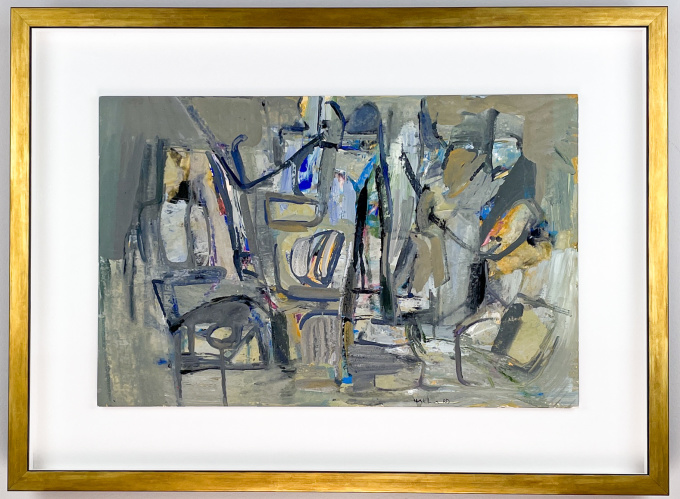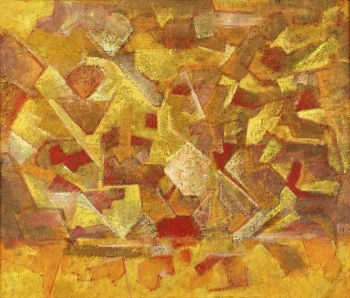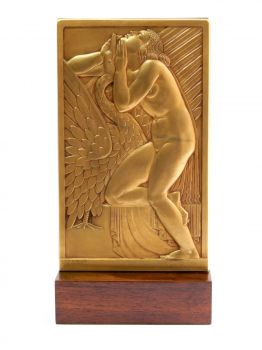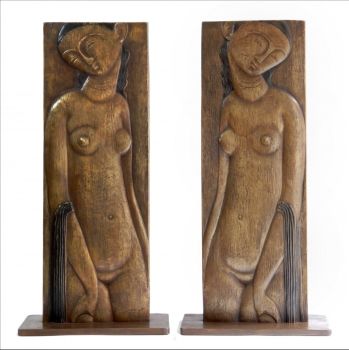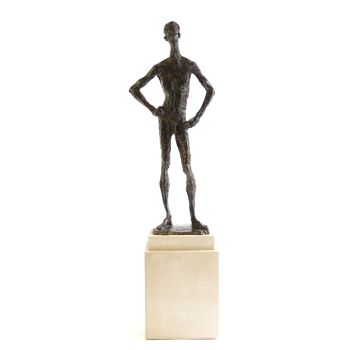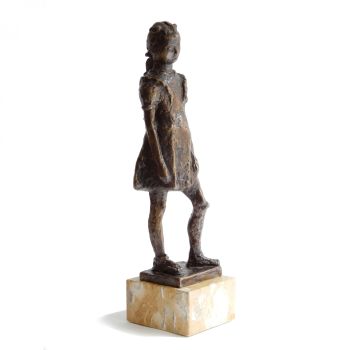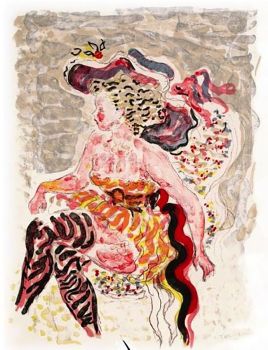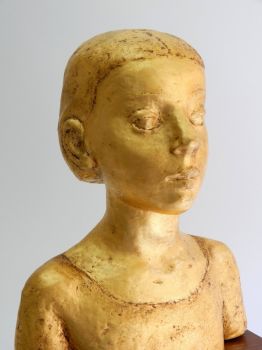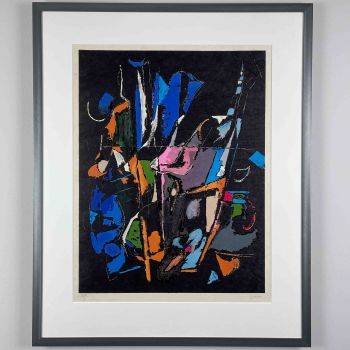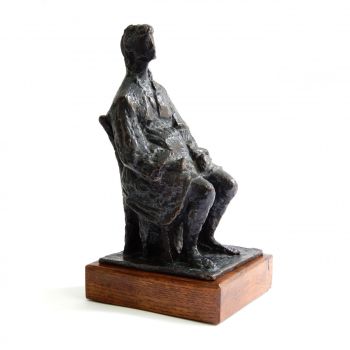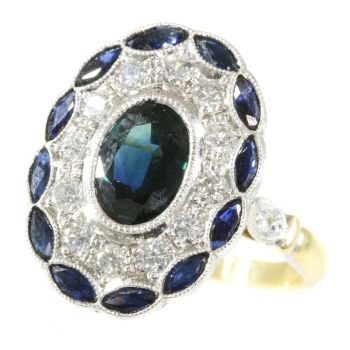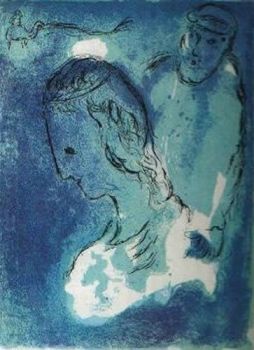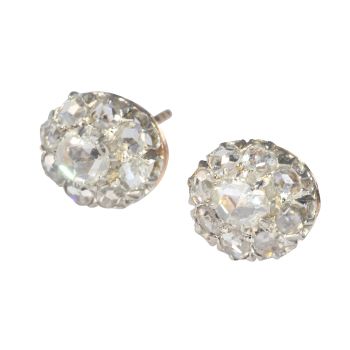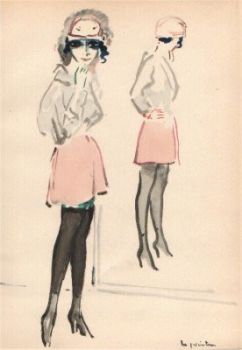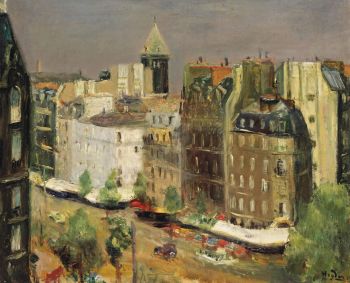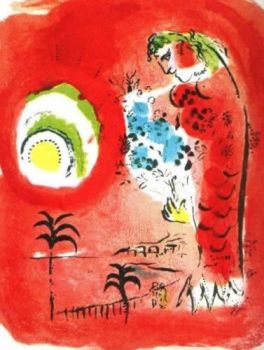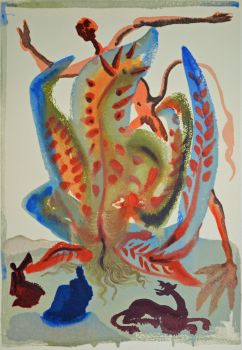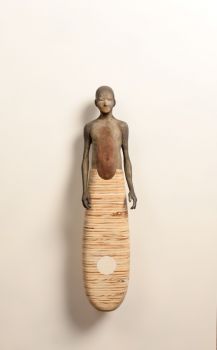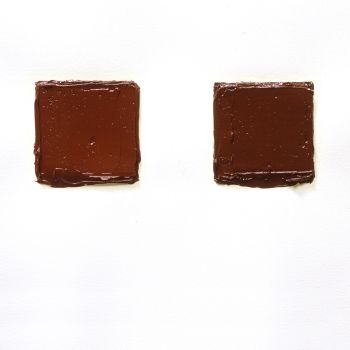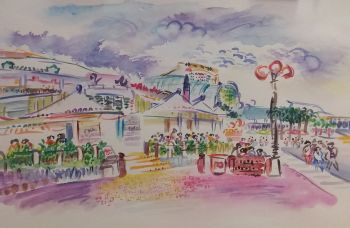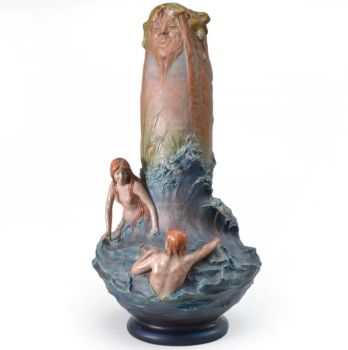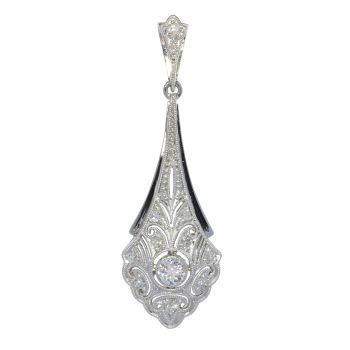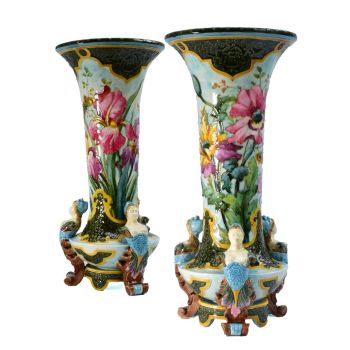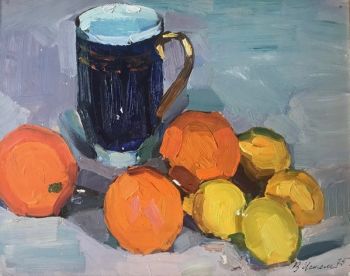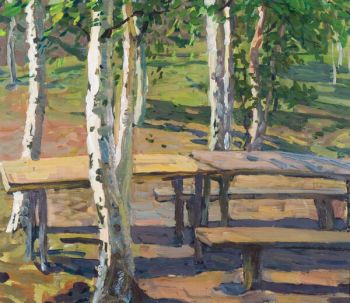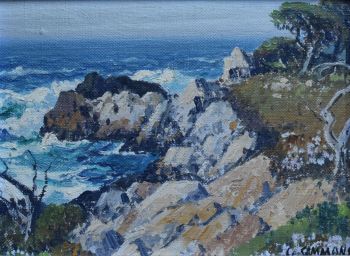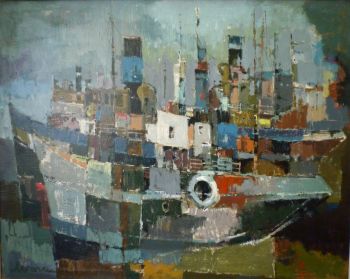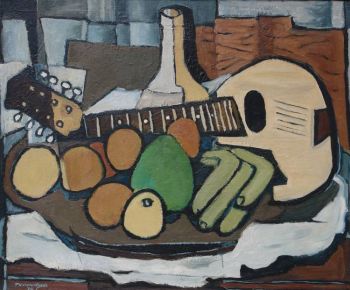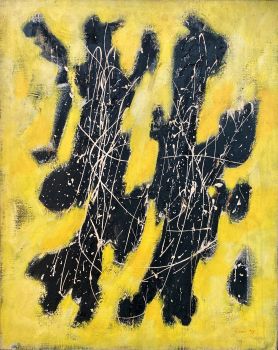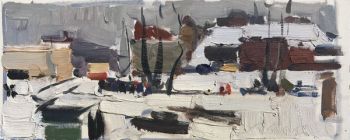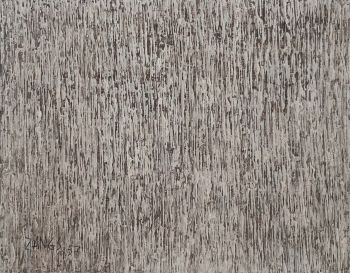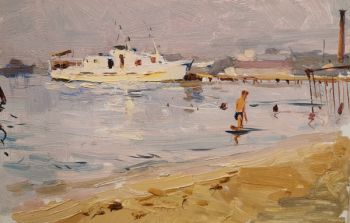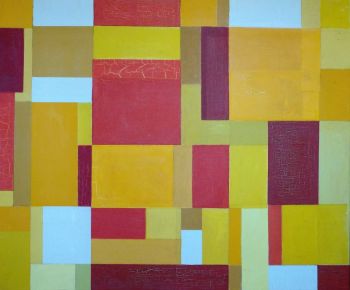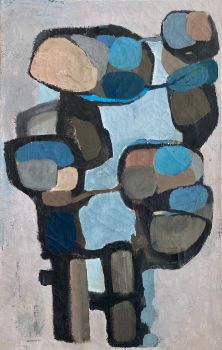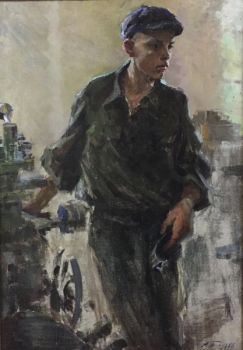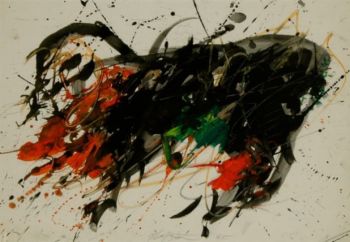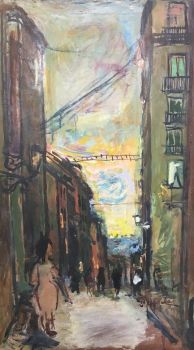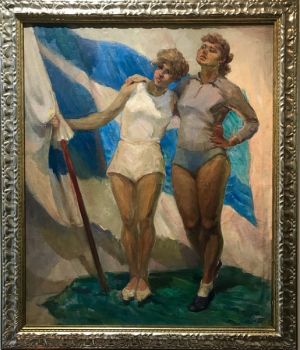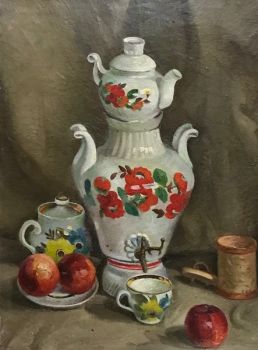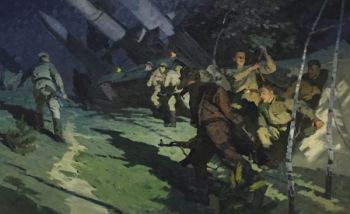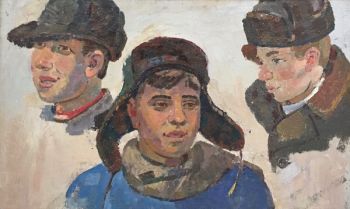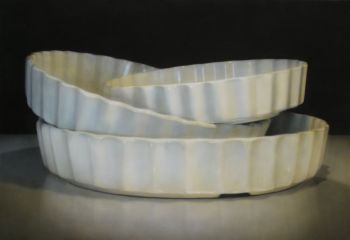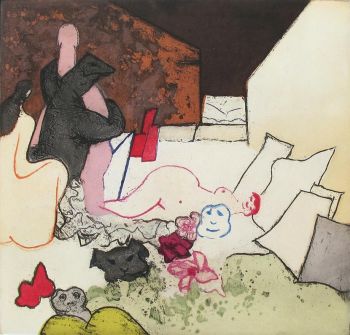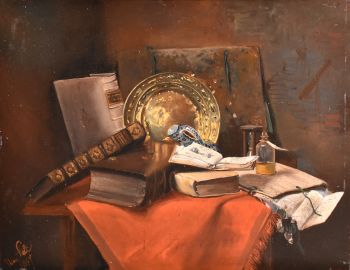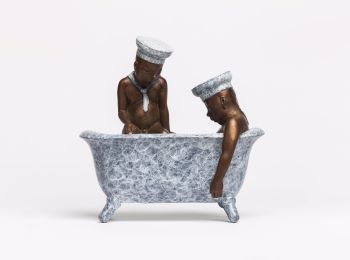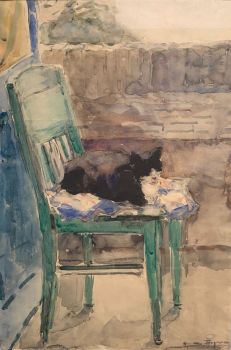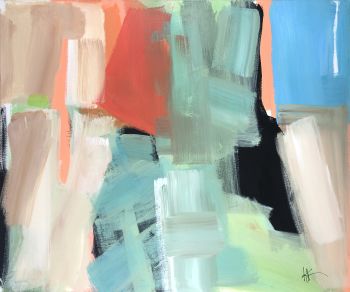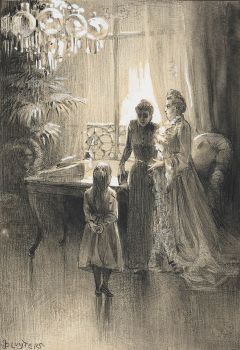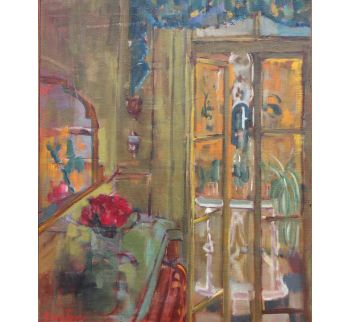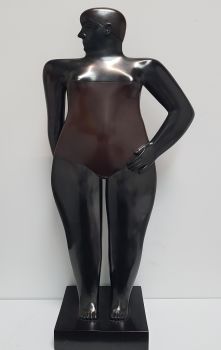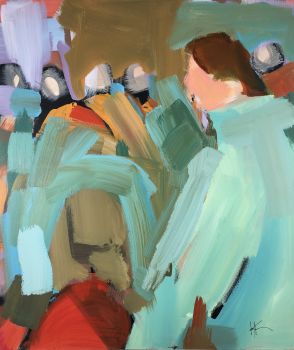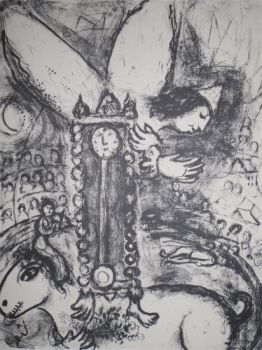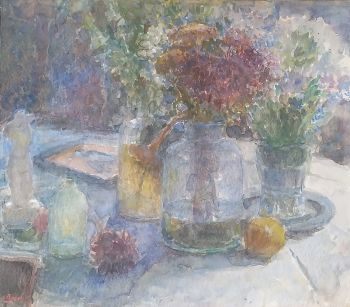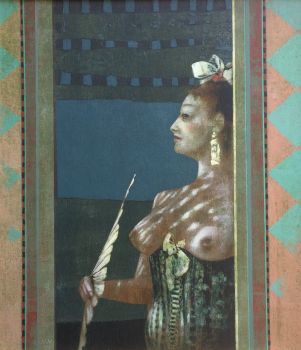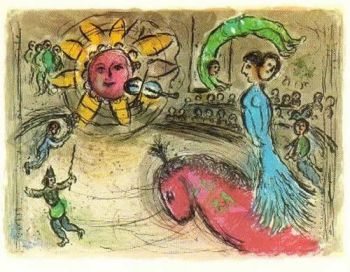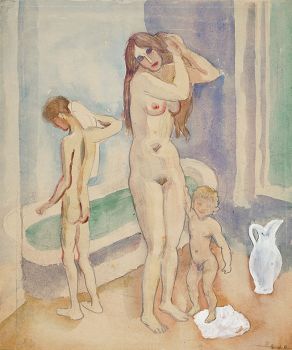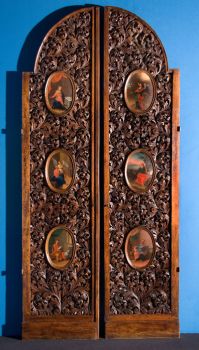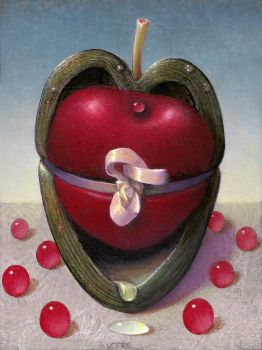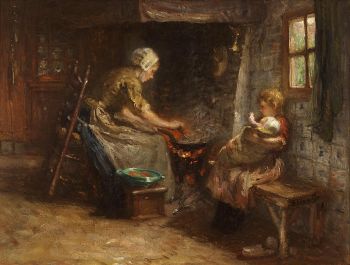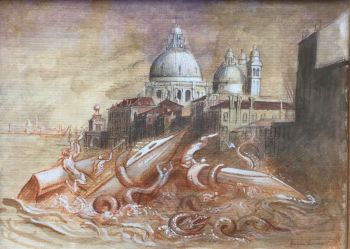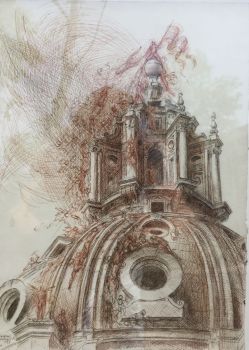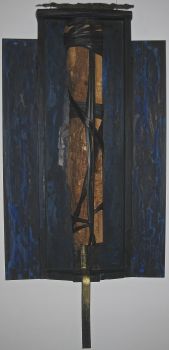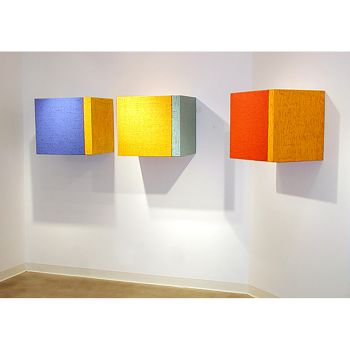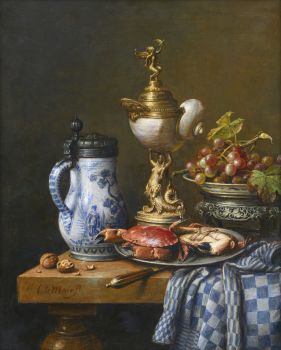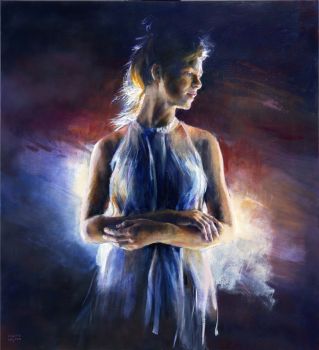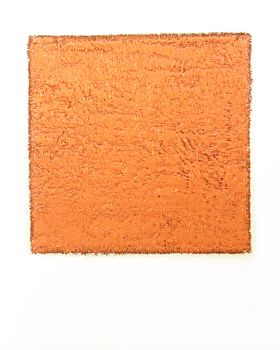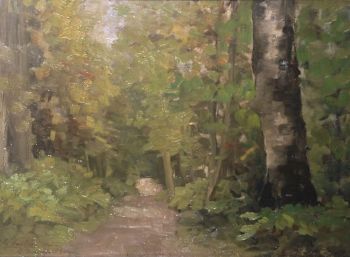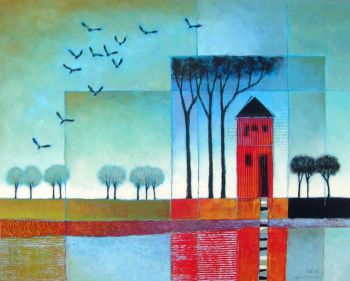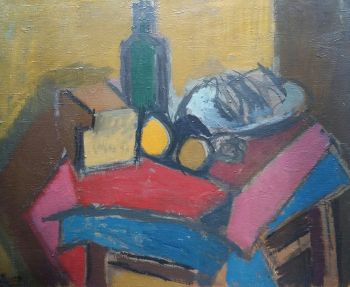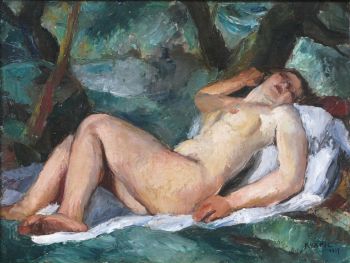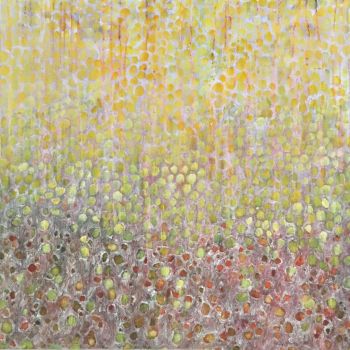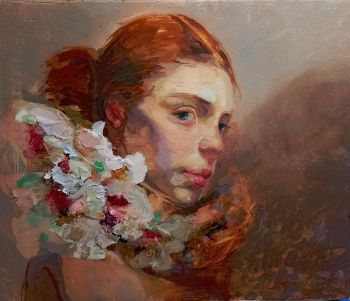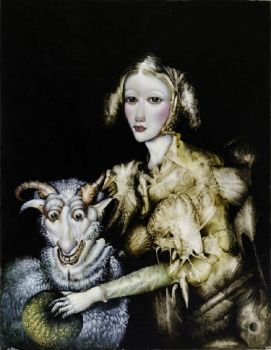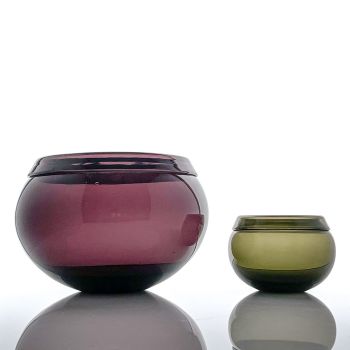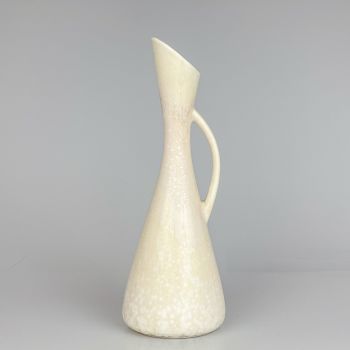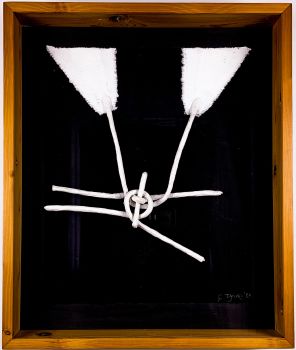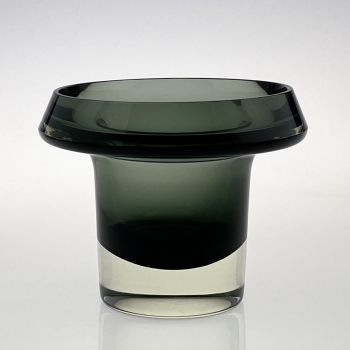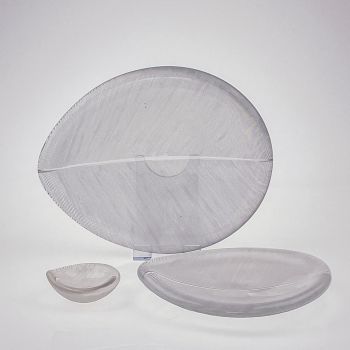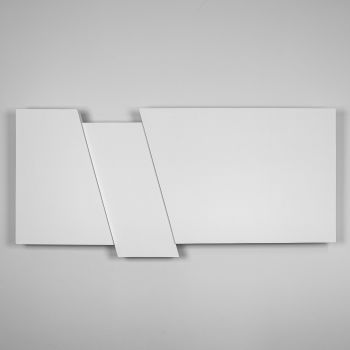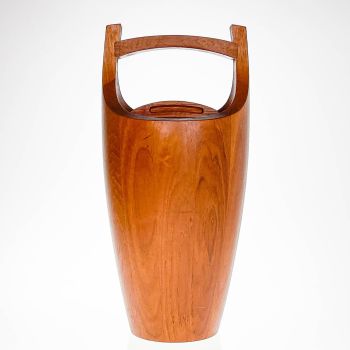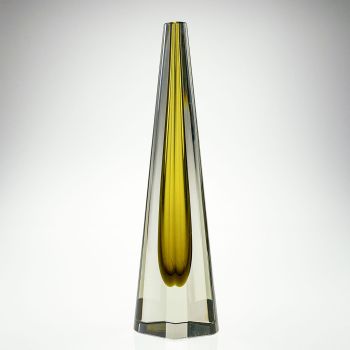“Interior”, circa 1955 – Tempera on cardboard 1950 - 1959
Louis Nallard
DétrempePeindre
49 ⨯ 66 ⨯ 4 cm
ConditionVery good
€ 2.250
Van Kerkhoff Art
- Sur l'oeuvre d'artOriginal artwork by French painter Louis Nallard. In this abstracted Interior the artist blends grey and earthtones with strokes of vibrant blues, orange and green. Signed by the artist, right bottom corner.
About the artist
Louis Nallard (Algiers 1918 – Paris 2016) was a French non-figurative painter of the Nouvelle École de Paris.
Born on June 17, 1918, in Algiers, French Algeria, had a life intertwined with art and creativity. Despite facing early hardships with the loss of his mother to the Spanish flu, Nallard found solace in his ancestral landscapes. Every summer, he returned to the Dombes region, his father’s birthplace, which became a wellspring of inspiration for his artistic endeavors.
At the tender age of sixteen, in 1934, Nallard unveiled his debut exhibition featuring portraits and landscapes, showcasing his skills in watercolors and gouaches. The exhibition took place at the gallery owned by Thomas Rouault, the nephew of the renowned painter.
In 1941, Nallard enrolled at the Beaux-arts in Algiers, where he encountered fellow artists such as Marcel Fiorini and Robert Lavergne. Lavergne later became his introducer at the prestigious Galerie Jeanne Bucher. During this time, Nallard also met Maria Manton, whom he married in 1944. Additionally, he formed a lasting friendship with the painter Georges Ladrey, who shared his fascination with the work of Pierre Bonnard.
In 1947, Louis Nallard and Maria Manton departed Algiers, accompanied by Fiorini, and relocated to the Paris region. This relocation marked a turning point as they discovered the artistry of Bissière and forged friendships with him and Chastel. From 1948 onwards, Nallard actively participated in group exhibitions at renowned venues such as the Salon des Réalités Nouvelles and the Salon de Mai. Moreover, he established significant connections with the Galerie Jeanne Bucher, which consistently exhibited his paintings from 1948 onwards.
Establishing themselves in the heart of Paris, Nallard and Maria Manton assumed management of the Hôtel du Vieux-Colombier near Saint-Germain-des-Prés in 1950. The hotel became a vibrant hub frequented by artists after their exhibitions. Noteworthy figures such as Serge Poliakoff, who earned a living playing the balalaika in Russian restaurants, Herman Braun-Vega, a recent arrival from Peru, Sidney Bechet, Robert Hossein, the sculptor César, and writers Jean Sénac and Kateb Yacine, occupied its premises. In 1950, Nallard’s talent was recognized when he received the prestigious Prix Fénéon. Three years later, Nallard and Maria Manton exhibited their works in Algiers alongside Jean Sénac, Baya, Bouqueton, and Jean de Maisonseul. Additionally, Robert Martin’s “Colline” gallery in Oran organized an exhibition that showcased Nallard’s paintings alongside those of Bouqueton. It was during this time that Albert Camus took notice of Nallard’s captivating artwork.
The Galerie Jeanne Bucher held its inaugural exhibition of Nallard’s works in 1957, marking the beginning of a longstanding partnership. The following year, Nallard was among the “Sixteen painters of the young Paris school” featured in the Musée de Poche collection, with a preface by Hubert Juin. Throughout the 1950s, Nallard and Maria Manton fostered connections with Algerian painters, including Guermaz, Issiakhem, and Khadda, and developed a special bond with Benanteur and Aksouh. In 1963, Nallard participated in the “Algerian Painters” exhibition organized in Algiers. The following year, his artwork was showcased at the Musée des Arts Décoratifs in Paris.
In the 1960s, Nallard and Maria Manton embarked on a new venture, running “La Galerie” where they provided a platform for young painters. They also played an instrumental role in the Salon des Réalités Nouvelles, with Maria Manton serving as the general secretary from 1961 to 1995 and Louis Nallard assuming positions as vice-president and later honorary president. As Nallard’s exhibitions continued to captivate audiences both in France and abroad, he joined the École des Beaux-Arts in 1975 as a teacher, a role he held until 1983. Today, Nallard’s remarkable artistic legacy is represented in numerous prestigious museums worldwide, including those in Paris, Grenoble, Algiers, Amsterdam, Budapest, Montreal, Oslo, and Turin.
Signed
Signed front, right lower corner: Nallard
Condition
Good original condition, professionally framed
Provenance
Galerie Blanche, Stockholm
Dimensions
Artwork
Height 31,5 cm
Width 49 cm
Frame
Height 49,5 cm
Width 66,8 cm
Depth 4 cm - Sur l'artiste
En 1934, à l'âge de 16 ans, Louis Nallard dévoile pour la première fois ses créations artistiques au public à la Galerie/Librairie Thomas Rouault. C’est le début d’un voyage prometteur dans le monde de l’art.
Alors qu'il est étudiant à l'Ecole des Beaux-Arts d'Alger en 1940, le destin le met en compagnie de personnalités telles que Fiorini, Bouqueton, Maria Manton ou Bernard Lavergne. Il ne savait pas que ces rencontres fortuites joueraient un rôle central dans l’élaboration de son destin artistique. Il faudra attendre 1949 pour que ces relations le conduisent à l'influent Jean-François Jaeger.
Louis Nallard avait déjà attiré l'attention de Max-Pol Fouchet lors d'une exposition à Alger en 1941, préfigurant la reconnaissance et l'acclamation qui suivraient. En 1947, Nallard prend la décision qui change sa vie de quitter l’Algérie et de s’installer dans le centre artistique animé de Paris. Cette démarche charnière marque un tournant dans son évolution artistique.
Son style artistique a subi une transformation au fur et à mesure qu'il s'adapte à la scène artistique parisienne dynamique. Un nouveau sérieux imprègne sa palette et ses formes prennent une qualité plus fragmentée et abstraite. Ce changement important ne passe pas inaperçu et, en temps voulu, il reçoit le prestigieux prix "La Bataille" de la prestigieuse galerie Drouant-David.
L'année 1947 marque également un autre moment charnière dans le parcours de Nallard lorsqu'il rencontre les œuvres influentes de Bissière à la galerie Drouin. Cette rencontre avec l'œuvre de Bissière laissera une marque indélébile dans l'évolution artistique de Nallard.
Peu après son arrivée à Paris, Louis Nallard croise la route du mentor éclairé Roger Chastel. Chastel, récipiendaire du Grand Prix National des Arts en 1932 et professeur à la prestigieuse Ecole Nationale Supérieure des Beaux-Arts de Paris, est devenu une influence directrice dans le parcours artistique de Nallard. Sous la tutelle de Chastel, le talent artistique de Nallard a continué à s'épanouir et à évoluer, consolidant ainsi sa place dans les annales de l'histoire de l'art.
Êtes-vous intéressé par l'achat de cette oeuvre?
Artwork details
Related artworks
Rene Rietmeyer
"Germany, Saarland, April 2001"2001
Price on requestEuropean Cultural Centre Collection
1 - 4 / 24 Curated by
Curated byGallerease Magazine
1 - 4 / 24Bernardus Johannes Blommers
Het bereiden van de maaltijd1870 - 1914
Price on requestStudio 2000 Art Gallery
1 - 4 / 24- 1 - 4 / 24
- 1 - 4 / 12

